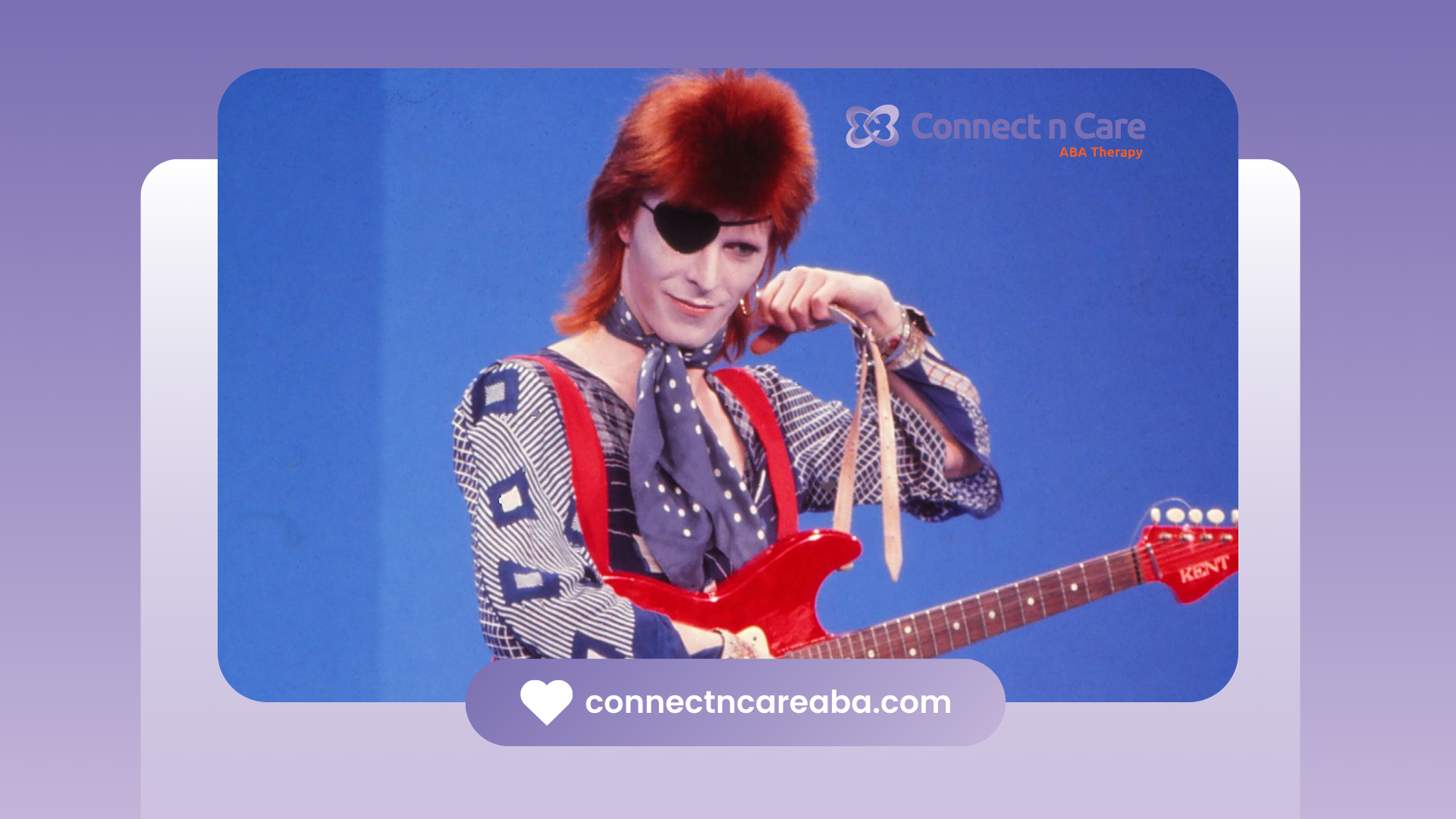Key Highlights
- Autism Spectrum Disorder (ASD) is a neurodevelopmental disorder usually diagnosed in early childhood.
- It is characterized by persistent challenges with social communication, interaction, and restricted, repetitive patterns of behavior.
- Autism is believed to be influenced by a complex interplay of genetic and environmental factors.
- While you cannot develop autism as an adult, some individuals receive a later diagnosis due to various reasons, including increased awareness and the ability to mask symptoms.
- Early detection and intervention are crucial for providing support and improving the quality of life for autistic individuals.
Autism spectrum disorder (ASD) is a lifelong neurodevelopmental condition that affects individuals in unique ways, influencing their social interactions, communication, and behavior. While autism is typically diagnosed in early childhood, many adults may wonder if it's possible to develop autism later in life.
The reality is that autism cannot develop in adulthood; however, an increasing number of people are receiving diagnoses later in life due to improved awareness and understanding of the condition. In this blog, we’ll explore why late diagnoses happen, the factors involved, and how early intervention can make a difference.
Understanding Autism Spectrum Disorder (ASD)
Autism spectrum disorder (ASD) is a complex neurodevelopmental disorder characterized by a wide range of symptoms impacting social interaction, communication, and behavior. Autism diagnosis involves observing repetitive behaviors, challenges with eye contact, and difficulties with social skills.
Understanding the causes of autism involves a combination of genetic and environmental factors during early brain development. Extensive research has identified various risk factors for developing ASD, highlighting the importance of early diagnosis and intervention for improved quality of life.
Defining Autism in Adults
Historically, autism was often perceived as a childhood disorder. However, awareness has grown that autism can persist into adulthood, and many individuals may receive an autism spectrum diagnosis later in life. An adult autism diagnosis does not mean the condition developed recently; rather, it signifies that the signs were either missed or misinterpreted earlier.
Previously, diagnoses such as Asperger’s syndrome, childhood disintegration disorder, and PDD-NOS (Pervasive Developmental Disorder, not otherwise specified) fell under the umbrella of autism. As understanding evolved, these distinctions were consolidated into a single diagnosis – autism spectrum disorder – recognizing the continuum of characteristics.
An adult with autism may have adapted their behaviors over time, learning to mask or camouflage their autistic traits to navigate a world not always designed for neurodiversity. This masking can sometimes lead to delayed diagnosis, as the outward signs might be less obvious.
The Continuum of ASD and Its Varied Presentations
The autism spectrum encompasses a wide range of symptoms, abilities, and support needs. Autistic individuals may present with varying combinations of strengths and challenges. Some might excel in areas like mathematics, music, or art, demonstrating remarkable talents, while others may experience significant difficulties with social interaction or sensory processing.
Characteristics of autism spectrum disorder can manifest differently throughout the lifespan. In early childhood, delays in language development or social reciprocity might be prominent indicators. As individuals mature, these challenges might evolve into difficulties building and maintaining relationships, navigating workplace dynamics, or expressing emotions effectively.
Understanding this continuum is vital for recognizing that autism is not a one-size-fits-all diagnosis. It is a neurodevelopmental condition that shapes an individual's experiences, interactions, and perceptions of the world.
Debunking the Myth: Can Adults Develop Autism?
The simple answer is no, adults cannot develop autism. Autism spectrum disorder is fundamentally a neurodevelopmental condition, rooted in early brain development. This development largely occurs during childhood, and by adulthood, the brain has established its core neural pathways and processing patterns.
While an adult cannot acquire autism later in life, it is indeed possible to receive a diagnosis in adulthood. This discrepancy highlights the fact that some autistic individuals may go undiagnosed for years, their challenges masked, misinterpreted, or attributed to other factors.
Distinguishing Between Late Diagnosis and Development
The increasing awareness of autism, coupled with evolving diagnostic criteria, has led to a surge in adults seeking autism assessments. Receiving an ASD diagnosis later in life does not mean the condition suddenly appeared; rather, it reflects a growing recognition and understanding of autism's varied presentations.
Distinguishing between late diagnosis and development is crucial. While an adult's brain cannot fundamentally develop autism anew, their life experiences, changing demands, and increased self-awareness can bring previously unnoticed or misinterpreted traits to the forefront. For example, the structured environment of school might have masked social challenges that become more apparent in the workplace.
Furthermore, societal perceptions of autism have shifted. What was once considered simply "eccentric" or "different" might now be recognized as aligning with autistic traits. This evolving understanding encourages individuals to seek professional evaluation if they resonate with the characteristics of autism spectrum disorder.
The Role of Genetic and Environmental Factors in ASD
The precise causes of autism spectrum disorder remain an area of active research, but scientific consensus points to a complex interplay of genetic and environmental factors. Genetic predisposition likely plays a significant role, as evidenced by family studies indicating a higher risk of autism among close relatives of diagnosed individuals.
Furthermore, certain environmental factors might contribute to the risk of autism spectrum disorder. These factors can include prenatal exposures (such as maternal infections, certain medications, or toxins), complications during birth, and potentially even environmental pollutants. However, it's crucial to emphasize that no single environmental factor has been definitively proven to cause autism.
Research efforts continue to unravel the intricate connections between genes, environment, and brain development in the context of ASD. Understanding these interactions holds promise for developing targeted interventions and support strategies for autistic individuals.
Recognizing Autism in Adults
Recognizing autism in adults can be more nuanced than in childhood, as individuals may have developed coping mechanisms or masking strategies to navigate social situations. However, certain signs and behaviors can serve as indicators for seeking professional evaluation.
Difficulties with social interactions, especially understanding unspoken rules or interpreting nonverbal cues, are common among autistic adults. Additionally, a strong preference for routines, a heightened sensitivity to sensory input, and intense, focused interests are also potential characteristics of autism spectrum disorder in adulthood.
Key Symptoms and Behaviors in Adults
Symptoms of autism in adults can manifest in various ways and often overlap with other conditions, making diagnosis challenging. Social interaction difficulties remain prominent, including challenges with initiating or maintaining conversations, understanding humor or sarcasm, and expressing emotions appropriately.
Repetitive behaviors, a hallmark of autism, might also persist into adulthood. These can include adhering rigidly to routines, engaging in repetitive movements or vocalizations, and having intense, focused interests. While these behaviors might seem insignificant to others, they often serve important functions for autistic individuals, providing comfort, predictability, or a way to regulate sensory experiences.
Sensory sensitivities can also be quite pronounced in autistic adults, making everyday environments overwhelming or uncomfortable. Sounds might seem amplified, lights too bright, or certain textures unbearable. These sensitivities can impact social interactions, making it difficult to tolerate crowded spaces or engage in activities others find enjoyable.
Challenges in Diagnosing Autism Later in Life
Obtaining an autism diagnosis in adulthood presents unique challenges. One significant hurdle is the lack of standardized diagnostic criteria specifically designed for adults. The diagnostic tools often rely on childhood developmental milestones, making it challenging to assess traits retrospectively.
Another challenge stems from the potential overlap between autism symptoms and other mental health conditions, such as anxiety, depression, or obsessive-compulsive disorder. Adults seeking an autism evaluation might have received prior diagnoses for these co-occurring conditions, which can complicate the diagnostic process.
Additionally, societal perceptions and stigma surrounding autism can act as barriers to diagnosis. Adults who have navigated life without an autism diagnosis might be hesitant to seek one, fearing judgment or discrimination. Raising awareness about the challenges and benefits of adult autism diagnosis is crucial for encouraging individuals to seek appropriate support.
The Importance of Early Detection
While adults cannot develop autism, the importance of early detection and intervention, primarily for young children, remains paramount. Early identification allows for timely access to therapies and support services, empowering individuals on the autism spectrum to reach their full potential.
Early intervention strategies, often tailored to a child's specific needs, focus on enhancing communication skills, improving social interaction, and managing sensory sensitivities. These interventions aim to equip autistic individuals with the tools and strategies they need to navigate the world around them more effectively.
Benefits of Early Intervention Strategies
Early intervention plays a crucial role in supporting the development of autistic children. By addressing developmental delays and challenges early on, these interventions strive to enhance communication, social, and cognitive skills, fostering independence and improving the overall quality of life for autistic individuals.
During the early developmental years, a child's brain exhibits remarkable plasticity, making it more receptive to therapeutic interventions. Early intervention capitalizes on this plasticity, promoting positive changes in brain structure and function. Research suggests that early intervention can lead to significant improvements in language acquisition, social reciprocity, and adaptive behaviors.
Beyond the individual, early intervention benefits families as well. Having access to resources, support networks, and specialized therapies can empower parents and caregivers to better understand and support their autistic child's unique needs, fostering a more positive and nurturing home environment.
Navigating Adult Diagnosis: Pathways and Obstacles
For adults seeking an autism diagnosis, pathways to diagnosis can vary depending on individual circumstances and access to healthcare services. Some common routes include referrals from general practitioners, mental health professionals, or specialized autism clinics.
However, several obstacles can hinder the diagnostic journey. Limited access to qualified professionals specializing in adult autism assessment is a recurring challenge. Long waitlists for evaluations, high costs associated with diagnosis, and a lack of awareness among healthcare providers about adult autism further complicate the process.
Despite these obstacles, receiving an adult autism diagnosis can be a validating and empowering experience. It provides a framework for understanding lifelong challenges, accessing appropriate support services, and connecting with a community that embraces neurodiversity.
Living with Autism: Support and Strategies for Adults
Living with autism as an adult presents unique challenges and rewards. While autism is a lifelong condition, individuals can thrive with the right support, strategies, and self-advocacy. Key aspects of support include fostering a sense of belonging, promoting acceptance, and creating environments that accommodate sensory needs.
Building strong support networks is essential, encompassing family, friends, therapists, and autistic peers who understand the unique experiences associated with navigating a world not always designed for neurodiversity. By embracing their strengths and seeking support in areas of challenge, autistic adults can lead fulfilling and meaningful lives.
Adapting Coping Mechanisms for Daily Life
Autistic adults often develop coping mechanisms to manage the demands of daily life. Some common strategies include establishing routines to minimize anxiety, utilizing sensory tools to regulate overwhelming input, and engaging in special interests to find joy and relaxation.
It's important to note that coping mechanisms should be respected and supported, as they serve a vital function in helping autistic individuals navigate a world that can often feel overwhelming or unpredictable. However, if coping mechanisms become unhealthy or interfere with daily functioning, seeking professional guidance from therapists experienced in working with autistic adults is recommended.
Additionally, fostering open communication and understanding within families, workplaces, and social circles can contribute significantly to an autistic adult's well-being. By educating themselves about autism, loved ones, colleagues, and friends can create more inclusive and supportive environments that celebrate neurodiversity.
Accessing Resources and Support Networks
Navigating adult life with autism necessitates accessing appropriate resources and support networks. Various organizations provide valuable information, connect individuals with support groups, and advocate for the rights and inclusion of autistic adults.
Local autism societies often offer workshops, social skills training, and employment support services tailored to the unique needs of adults on the spectrum. Online communities and forums provide platforms for connecting with others who share similar experiences, offering peer support and a sense of belonging.
Remember, seeking professional help is not a sign of weakness but rather an act of self-care and empowerment. Therapists specializing in autism spectrum disorder can provide individualized therapy, teach coping strategies, and offer guidance in navigating the complexities of adult life with autism.
Conclusion
Autism is a complex spectrum disorder that can present differently in adults. While late diagnosis is possible, it's crucial to understand the distinction between developing autism and receiving a delayed diagnosis. Genetic and environmental factors play significant roles in ASD. Early detection and intervention offer substantial benefits, aiding in coping mechanisms and accessing necessary support.
Recognizing and supporting adults with autism require tailored strategies and understanding. By debunking myths and increasing awareness, we can foster a more inclusive and supportive environment for individuals with autism. If you suspect you have ASD, seek a professional autism evaluation for personalized guidance on navigating life with autism.
Frequently Asked Questions
Can autism symptoms become more apparent with age?
While autism is a developmental disorder present from early childhood, autism symptoms can become more apparent with age. As social demands and life transitions occur, challenges with social skills, communication, and behavioral patterns may become more pronounced, prompting individuals to seek diagnosis.
How do I get diagnosed with ASD as an adult?
If you suspect you might have autism spectrum disorder, consult a healthcare professional experienced in adult autism diagnosis. They will conduct an autism evaluation based on the diagnostic criteria outlined in the Statistical Manual of Mental Disorders (DSM-5), considering your developmental history and current challenges.
Are there specific challenges adults with autism face?
Adult autism can present challenges in various domains, including social interaction, communication, sensory sensitivities, and navigating employment opportunities. These challenges, if not addressed, can impact an individual's quality of life. Seeking appropriate support and understanding can mitigate these difficulties.
Sources:
https://pmc.ncbi.nlm.nih.gov/articles/PMC8531125/
ttps://autism.org/age-and-diagnosis/
https://www.autismspeaks.org/adult-autism-diagnosis
https://sparkforautism.org/discover_article/autism-diagnosis-adulthood/
https://adult-autism.health.harvard.edu/resources/getting-an-autism-diagnosis-as-an-adult/









